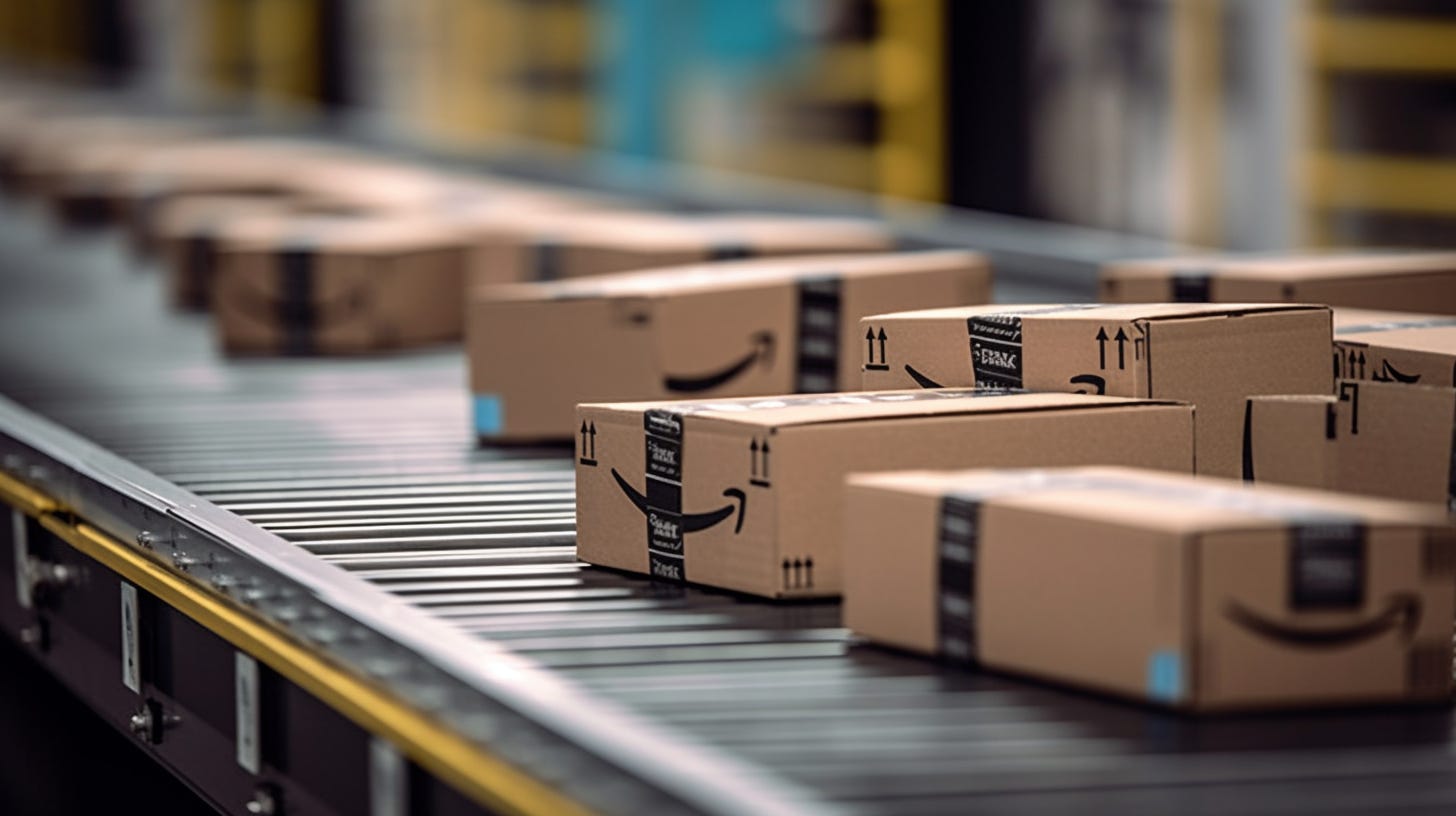The Future of Deliveries? Amazon Empowers Small Businesses to Deliver Your Packages!
Amazon's Game-Changing Move: Your Next Delivery Might Come from a Local Shop!
In a surprising move, Amazon is embarking on a groundbreaking strategy by enlisting small businesses to handle package deliveries through its new Amazon Hub Delivery system. As a veteran in the Amazon FBA world, I have been closely following this development and its potential impact on sellers. Let's dive into the pros and cons of this bold initiative.
Why it matters: Dubbed Amazon Hub Delivery, this is the tech and logistics giant's latest attempt to expand its "last mile" network — the last stage in logistics where packages are ultimately delivered to customers — through external workforces.
How it works: Participating businesses deliver an average of 30 packages a day for seven days a week, excluding major holidays.
Meanwhile, drivers from Amazon's Delivery Service Partner network drop off the packages to local businesses, which are required to have a secure area for storage.
Amazon wouldn't state exactly how much it pays per package; but based on earnings of $27,000 a year, the rate would be about $2.50 a package.
What they’re saying: Beryl Tomay, vice president of Amazon Last Mile Delivery and Technology, tells Axios in an email interview that the new program will help "create opportunities for delivery partners interested in growing a business ... and supplementing their income.”
Pros:
Enhanced Delivery Network: With local shops and businesses joining the delivery ecosystem, Amazon gains a more extensive and decentralized network. This can lead to faster and more efficient deliveries, benefiting both customers and sellers.
Increased Flexibility: By utilizing small businesses, Amazon gains flexibility in managing deliveries, especially during peak times and high-demand periods. This can help alleviate strain on existing logistics infrastructure and reduce delays.
Business Growth Opportunities: Small businesses participating in the Amazon Hub Delivery program have the chance to expand their operations and supplement their income. This partnership can provide a boost to local economies and foster entrepreneurial growth.
Cons:
Quality Control: While involving small businesses may increase delivery options, ensuring consistent service quality across various locations can be a challenge. Maintaining Amazon's high standards and customer satisfaction levels will be crucial.
Potential Competition: As local businesses become part of the delivery ecosystem, there is a possibility of increased competition for Amazon sellers. They may face challenges in pricing, visibility, and standing out among the crowd.
Dependence on Third Parties: Relying on external businesses for deliveries means sellers have less direct control over the entire fulfillment process. Communication, coordination, and potential disruptions could pose risks to the overall customer experience.
From my perspective as a 10-year veteran in the Amazon FBA world, I believe this move holds immense potential. It presents an opportunity for sellers to tap into a broader delivery network, potentially reaching customers more efficiently. However, it also introduces new dynamics and challenges that sellers must navigate.
The Good Stuff:
Lightning-Fast Deliveries: With more businesses on board, Amazon can zip through the neighborhoods like never before. Say goodbye to long waits for your packages!
Support for Local Heroes: This program gives a chance for small businesses to shine. They can expand their horizons and make some extra dough while helping out Amazon. Go, local economy!
Flexibility Galore: Amazon gets a boost in flexibility by working with these small businesses. When things get super busy, they can rely on their new pals to keep the packages flowing smoothly.
But Wait, There's More:
Quality Control Adventures: Now, making sure that every delivery is top-notch might be a bit tricky. Let's hope these businesses can meet Amazon's high standards, or else there might be some grumpy customers!
Competition Alert: Uh-oh, sellers like me might have some new rivals in town. With more businesses joining the delivery game, it could get a bit crowded out there. Gotta find ways to stand out, my friends!
Third-Party Surprises: Depending on others for deliveries means we sellers lose a bit of control. Communication and coordination could be a rollercoaster, and who knows what unexpected surprises might pop up along the way?
In my opinion, the Amazon Hub Delivery program signifies a significant shift in Amazon's logistics strategy.
Amazon says it's looking to partner with 2,500 small business drivers by the end of 2023.
While it brings advantages such as enhanced delivery networks and growth opportunities for small businesses, it also introduces concerns related to quality control and increased competition.
As this initiative unfolds, it will be crucial for sellers to adapt and optimize their strategies to leverage the evolving landscape of Amazon's delivery system.




